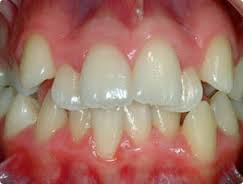What makes my teeth crooked?- Scottsdale Phoenix AZ | Budd Orthodontics
May 28th, 2020
Have you ever wondered why some people are just born with great smiles and others seem to have received the short end of the stick when it comes to teeth? Is it all just related to genetics?

There is absolutely a genetic component to how teeth develop, and genetics play into the likelihood that you will develop orthodontic problems as your adult teeth erupt. However, this is only part of the story. The environment in which your teeth erupt also has a significant influence on how they develop. In fact, I have treated identical twins, who are by definition genetically identical, but when you look in their mouth, their teeth are very different.
There are a number of factors that can affect the development of your teeth and bite. One common example is thumb sucking. Thumb sucking will change the pressure that your lips, tongue, and cheeks apply to your developing teeth and jaws. It tends to have a narrowing effect on the upper jaw and creates protrusion of the front teeth. Patients who have sucked their thumb for a prolonged period of time often require an "expander" to undo the damage as well as braces. We often joke with patients that the only things that should go into their mouth are food and a toothbrush. Everything else you want to keep out.
Another example of how environment influences dental development are children who eat a lot of sugary drinks and food. It's OK to have a sweet treat from time to time, but patients who constantly "nibble" or "sip" on sugary snacks or drinks and don't brush their teeth in between tend to get decay. If a patient loses a baby tooth early due to decay, it can disrupt the correct order in which the permanent teeth grow in and cause significant bite problems. If you have a child who has lost a tooth early due to decay, you should consult with an orthodontist to prevent the development of bite problems in the future.








 Website Powered by Sesame 24-7™
Website Powered by Sesame 24-7™